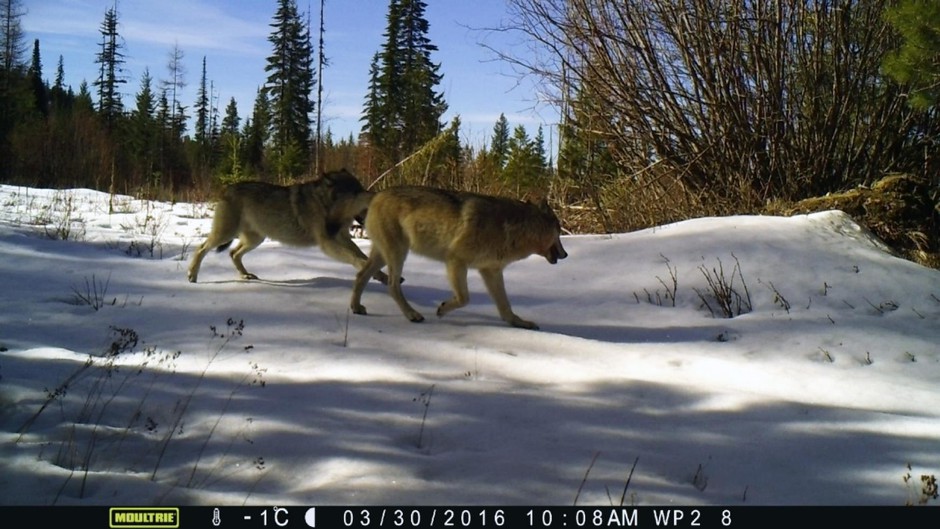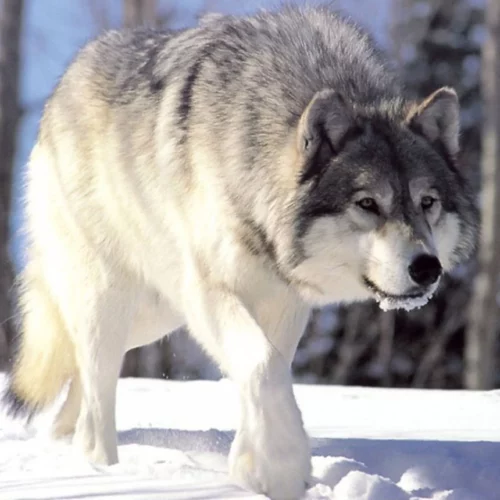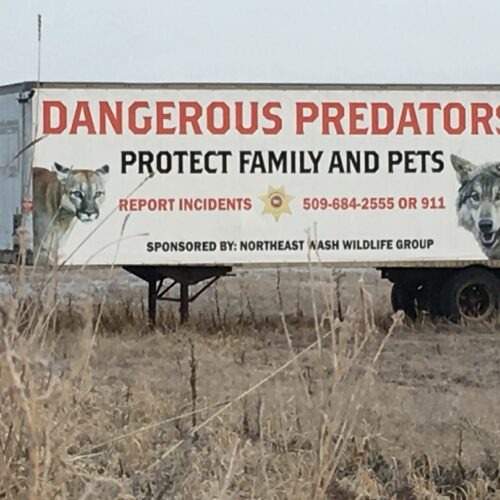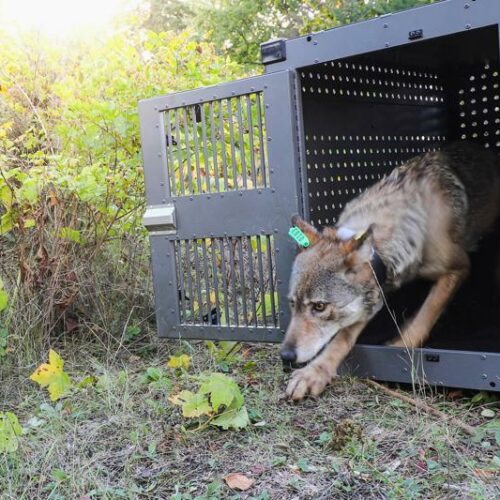
Lawsuit Seeks To Block Washington State From Killing Wolves
Read On
BY NICHOLAS K. GERANIOS / AP
A lawsuit filed Thursday seeks to prevent the state of Washington from killing more wolves from a pack that is preying on cattle.
The Maryland-based Center for a Humane Economy filed the suit in King County Superior Court, contending too many wolves have been killed as a way to protect livestock at a single ranch in the Kettle River Range in Ferry County.
The center and other conservation groups say it may be time to consider moving the cattle off Colville National Forest grazing lands that are also prime wolf habitat.
The Washington Department of Fish and Wildlife said Wednesday it planned to kill more members of the Old Profanity Territory wolf pack. The agency killed one wolf last month in an effort to change the behavior of the pack.
Since then, the pack has been blamed for killing two cows and injuring five others. The pack is credited with 27 depredations since September.
“The chronic livestock depredations and subsequent wolf removals are stressful and deeply concerning for all those involved,” agency director Kelly Susewind said. “The department is working very hard to try to change this pack’s behavior.”
The Lands Council, a Spokane-based conservation group, said it may be time to move the cattle.
“It is evident at this point, grazing in an area of prime wolf habitat is folly,” said Chris Bachman of the Lands Council.
Bachman noted that wolves have come into regular conflict with cattle from the Diamond M Ranch in Ferry County. Conservation groups say the state has killed 18 wolves over the years on behalf of the ranch.
Ranch owner Len McIrvin said his business averages 70 head of cattle lost per year to wolves, and he estimated his losses at more than $1 million.
He doesn’t think wolves will stop preying on his cattle just because the state kills a few of the animals.
“If wolves kill my cattle, I have a right to kill wolves,” he said.
The Center for Biological Diversity also opposes killing more wolves.
“If this rancher keeps putting cattle in prime wolf habitat, he needs to accept some losses just like any other business,” said Sophia Ressler, an attorney at the center.
In 2016, the agency wiped out the Profanity Peak pack of wolves for preying on cattle. The current pack occupies the same general area.
Wolves were exterminated in Washington state by the 1930s on behalf of ranchers. The animals started returning earlier this century from neighboring Idaho and British Columbia, Canada.
Most of the wolves are located in the rugged mountains of northeastern Washington, but they have started spreading to other areas of the state.
Officials say the state now has at least 126 wolves in 27 packs with 15 successful breeding pairs. For the first time, a pack has been found living west of the Cascade Range.
Gray wolves are no longer listed as an endangered species under federal protection in eastern Washington. They are still federally protected across the rest of the state, although the federal government is considering lifting those protections.
Copyright 2019 Associated Press
Related Stories:

Wildlife officials confirm 6 wolf poisonings in northeastern Washington
The Washington Department of Fish and Wildlife is asking for the public’s help to find who poisoned six wolves in northeastern Washington.

A Wolf In Northeastern Washington Was Killed Illegally. Here’s Why It’s A Big Deal
Wolf poachers go mostly undiscovered — but that hasn’t stopped nonprofit organizations from putting up significant cash rewards for information about these incidents. While rewards generally don’t lead to convictions, Defenders of Wildlife’s Gwen Dobbs says reward offers in cases of wildlife poaching can help raise public awareness, “hopefully serving as a deterrent against potential future incidents, even if a reward does not directly lead to a conviction.”

Scientists Urge Federal Government To Restore Protections For Gray Wolves
A group of scientists urged the Biden administration Thursday to restore legal protections for gray wolves, saying their removal earlier this year was premature and that states are allowing too many of the animals to be killed.















